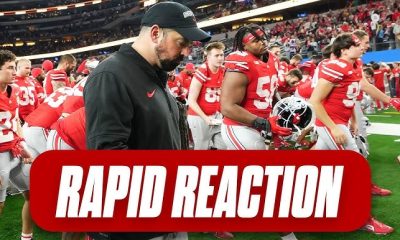Other clubs
finally, Canterbury Bulldogs ahave a recall clause for Stephen Crichton, as point of contact
 The Canterbury Bulldogs’ decision to incorporate a recall clause for Stephen Crichton highlights a strategic move within the rugby league’s evolving contract structure. Recall clauses are unique provisions that allow clubs to reassess, adjust, or even terminate agreements based on performance, injury, or external factors. In the case of Crichton, such a clause serves as a point of contact that can greatly influence both his career trajectory and the club’s future plans.
The Canterbury Bulldogs’ decision to incorporate a recall clause for Stephen Crichton highlights a strategic move within the rugby league’s evolving contract structure. Recall clauses are unique provisions that allow clubs to reassess, adjust, or even terminate agreements based on performance, injury, or external factors. In the case of Crichton, such a clause serves as a point of contact that can greatly influence both his career trajectory and the club’s future plans.
Stephen Crichton, a powerful and highly skilled center, has been a standout player for the Penrith Panthers, helping to secure multiple NRL Premierships. His physicality, impressive try-scoring abilities, and defensive prowess made him an attractive acquisition for the Bulldogs. His move is seen as a major acquisition for the club, offering a seasoned player who can contribute immediately to their ambitions of returning to the upper echelon of the NRL.
The Bulldogs’ implementation of a recall clause is likely a response to several factors. The NRL, like many other professional leagues, faces an environment where player turnover and contract flexibility are vital. A recall clause can give a club a level of security, as it ensures that they maintain a degree of control over the player’s future in the event that unforeseen circumstances arise. For the Bulldogs, this clause could be used to safeguard the club against a potential underperformance by Crichton, or if his role within the team needs to be reassessed due to tactical changes.
From a player’s perspective, a recall clause can carry both advantages and drawbacks. It provides an opportunity for Crichton to demonstrate his worth in a new environment and for the Bulldogs to adjust if the partnership doesn’t yield the expected results. However, recall clauses can also create a sense of uncertainty for the player. While they may allow for flexibility, they also risk disrupting the player’s stability if the club exercises the clause unexpectedly. Given Crichton’s established reputation, the Bulldogs are likely to approach his tenure with a level of caution but also a focus on optimizing his contributions to the team’s growth.
The point of contact within the recall clause typically refers to a specific contact window or condition under which the club or player can invoke the clause. For example, the Bulldogs might have a specific window in Crichton’s contract where they can opt for a review, possibly after a season, or based on certain performance benchmarks or external factors. The timing and conditions of the recall clause can play a pivotal role in how it affects both the player and the club. This clause is also a reflection of the growing trend in the NRL of offering more performance-based contracts, where player fitness, commitment, and skill development directly impact contract longevity.
For the Canterbury Bulldogs, having a recall clause for a player like Stephen Crichton also aligns with their overall roster strategy. The Bulldogs are in a rebuilding phase, with hopes to strengthen their squad with proven players. Crichton’s arrival was seen as a significant coup, but as with any player joining a new club, there are inherent risks. If the Bulldogs’ coaching staff feels that Crichton’s contribution doesn’t meet the standards expected, the recall clause can allow the club to reassess their options without being financially burdened by a long-term, immovable commitment.
Furthermore, the recall clause could be an asset to both the Bulldogs and Crichton in terms of career development. If Crichton performs well and helps the Bulldogs achieve their goals, the recall clause could be overlooked or even renegotiated into a longer, more stable agreement. If the move doesn’t work out, the clause offers an exit strategy for both parties, giving Crichton the chance to find a new home in the NRL or elsewhere.
While details about the specific terms of Crichton’s recall clause remain relatively private, the structure itself represents an emerging trend in the NRL. It mirrors similar practices seen in international football and other professional sports, where player contracts are becoming more adaptable to changing circumstances. This trend signifies a shift away from rigid, long-term agreements towards more fluid arrangements that allow clubs to maintain greater flexibility in roster management.
In conclusion, the Canterbury Bulldogs’ decision to include a recall clause for Stephen Crichton reflects a smart, forward-thinking approach. By ensuring a point of contact in the form of a recall option, the Bulldogs can navigate any unforeseen circumstances and safeguard their long-term interests. For Crichton, while this may introduce some uncertainty, it also offers the opportunity to prove his value within the NRL’s competitive environment. Both the player and the club will need to carefully manage this provision to ensure the best possible outcomes for all parties involved.

-

 Other clubs5 months ago
Other clubs5 months agoGood News: Netflix Set to Release Documentary on Nebrasker Cornhusker…
-

 Other clubs5 months ago
Other clubs5 months agoGood News: Netflix Set to Release Documentary on Seattle Seahawks…
-

 Other clubs7 months ago
Other clubs7 months agoI’M Leaving and i promise never to return: Angel Reese announce after she…
-

 Other clubs3 months ago
Other clubs3 months agoFinally he is back: Canterbury Bulldogs former star, Ben Barba Return back to Bulldogs few minutes ago…
-

 Derby county5 months ago
Derby county5 months agoGood News: Netflix Set to Release Documentary on oklahoma sooners
-

 Other clubs7 months ago
Other clubs7 months agoESPN’s FPI Picks a Winner Between Oregon and Ohio State in the College Football Playoffs
-

 Other clubs2 months ago
Other clubs2 months agoPhilip Bailey announce a devastating news…
-

 Other clubs1 month ago
Other clubs1 month agoBreaking News: michael jordan the GOAT return back to cololina tar heels basketball as head coach….









